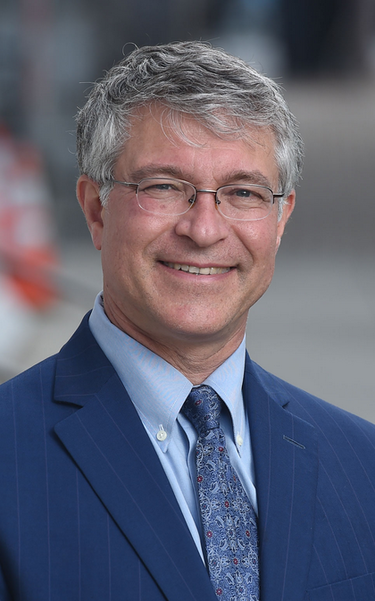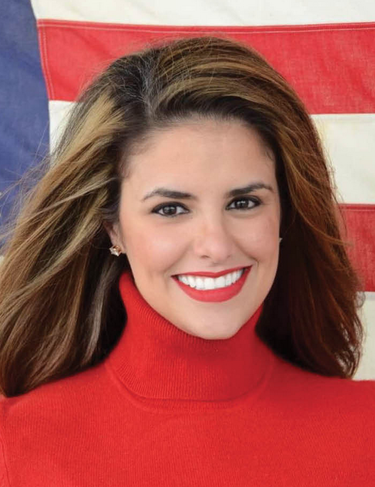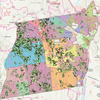Assembly District 110: Dem incumbent Steck faces GOP challenger Velella
GUILDERLAND — In the race to represent New York’s 110th Assembly District, longtime Democratic incumbent Phillip G. Steck faces opposition from Republican Alexandra M. Velella.
The two are facing off in a newly-drawn assembly area that now contains 10 Guilderland Election Districts, which are bounded by the town of Rotterdam to the north, Willow Street and the Albany Pine Preserve to the south, Colonie to the east, and Route 20 to the west.
Steck
Phillip G. Steck is a civil rights attorney.
He served in the Albany County Legislature for 13 years prior to election to the State Assembly in 2013.
He currently chairs the committee on alcoholism and substance abuse, and pointed to two “two very significant goals” that the committee had accomplished in his first two years as chairman.
The first is the certification of recovery residences, described by New York State as “group-living … which focuses on interventions necessary to address the specific functional and behavioral deficits [typically addiction] which prevent residents from accessing generic housing.”
Prior to Steck’s legislation, he said, if someone living in a recovery residence relapsed, he or she “would get kicked out.” But now, that person “will have backup services in the event they have struggles.”
The second accomplishment Steck pointed out was the statewide expansion of a program out of Buffalo called New York MATTERS (Medication for Addiction Treatment and Electronic Referrals) that assists first responders arriving at the scene of a “substance abuse or mental-health crisis.”
Steck said the patient “can get information instantly on available treatment locations. And if immediate medical care is needed, they can access that through telehealth services.”
Steck also touted his independence from other Democratic members of the Assembly, claiming to have been one of the first to call on former governor Andrew Cuomo to resign.
“I did that before it was fashionable,” Steck said.
Since he last ran in 2020, Steck has raised nearly $75,000, over half of which came in the form of thousand-dollar-or-more donations, overwhelmingly from organized labor, according to filings with the state’s Board of Elections. Of the approximately 183 contributions Steck received as of Oct. 3, the most recent contribution date on record with the board of elections as of Oct. 27, just 24 accounted for close to $38,000 in donations.
Velella
Alexandra M. Velella is an attorney who represents injured workers before the New York State Workers’ Compensation Board.
She’s the daughter of Guy Velella, a Bronx Republican who served in the Assembly for a decade followed by 18 years in the State Senate.
As assemblywoman for the 110th, Velella said she plans to be “a representative who truly listens to the people and meets the people’s needs and restores a little bit of common sense to Albany.”
With the political landscape becoming ever more polarized, Velella said she thinks “somebody who can be a consensus builder and work with everybody in Albany is very important.”
She said there are a lot of young and motivated conservative candidates running against “institutional figures,” and “we can all see the way things are going in our communities: crime is rising, inflation is out of control.”
Every New Yorker “deserves to be able to afford to put gas in their car, groceries on their table, and a roof over their head,” Velella said, but right now “that’s just not possible in New York. It’s become unsafe and unaffordable under years of single-party rule.”
The GOP controlled the State Senate for most of the 20th Century; in 2018, Democrats took control of the Senate, and in 2020, Democrats got a veto-proof supermajority.
Acknowledging her chances of victory, Velella said she hopes to be one of the Republican Party’s “David and Goliath stories” on Election Night, so she can “really bring the change the people of New York want to see.”
Velella, after narrowly losing a seat on the Colonie Town Board last November, has raised $32,364 since, with a single $12,000 contribution accounting for over a third of Velella’s fund-raising total, according to Board of Elections filings.
Environment
Steck supports the $2.4 billion environmental bond act, but noted it only deals with “what’s often called climate resiliency,” meaning there will be money spent by the state to counteract the effects of climate change, but the act does not address the “causes of climate change.”
He also noted another deficiency of the proposed act: “It’s a one-shot deal,” Steck said. “So there’s no funding mechanism for future environmental activities, in terms of trying to deal with climate change.”
While there is other proposed legislation that is better at addressing the causes of climate change, Steck said, “The environmental bond act is worth passing, because these things have to be dealt with.”
To end New York’s dependence on fossil fuels, Steck said the state has to do more to fund green energy.
“There are two ways to do it,” Steck said of the state footing the bill to expand green energy, the first is the Climate Community Investment Act, which proposes to place a tax on manufacturers’ carbon emissions.
The proposed legislation disincentivizes manufacturers from emitting emissions into the atmosphere by imposing a fee on every short ton of carbon they produce, “which is something that economists have been advocating for 50 years,” Steck said.
If the price of a product does not reflect the potential damage it could cause to the environment, Steck said, taxpayers end subsidizing the clean-up.
“It’s much better from an economic point of view to have those who are causing the pollution be charged for it,” Steck said. “And then they’ll find ways not to produce it.”
The second way Steck wants to fund green energy in the state is through his own proposed legislation, which would reinstate New York’s five-cent tax, in place from 1905 to 1981, on the sale of stocks and bonds, with a large portion of the revenue raised from the sales, estimated at about $2.1 billion per year, being allocated toward green energy.
Common sense dictates that it’s “important to preserve our environment,” Velella said when asked if she supported the bond act. “And it’s important to invest in the technology; we need to live as sustainably as possible. I just don't think we’re there yet.”
She looked to Elon Musk, the owner of, among other things, electric-vehicle manufacturer Tesla, as someone who, “love him or hate him, stands to profit more than any other person on the face of the Earth from green technology.”
Musk said “the technology is not there yet,” according to Velella. “It’s not realistic,” said Velella, adding later that Musk is an “expert” on the topic.
Often, said Velella, it’s the helpful hand of the government that lends a hand to technologies with commercial appeal that is not yet known, or is seen as too much of a money pit, like electric vehicles or the internet, to get where they need.
Founded in 2003, Tesla only started to turn a profit from selling cars alone over the past couple of years. The company receives from the federal government “regulatory credits” for manufacturing clean fuel and zero-emission vehicles, which it can then sell to other carmakers.
Tesla receives hundreds of millions in annual regulatory credits from the federal government. Over the last three years, the company sold over $4.1 billion worth of them to other manufacturers.
Velella said she thinks the state needs to invest more in “research and development,” not on “forcing these costly measures that may not be appropriate or effective down people’s throats.”
And New York residents do not want to see the state “go the way of California,” she said, “dealing with rolling blackouts,” which are due in part to utility providers’ mandated dependence on green-energy sources with output that can vary with the vicissitudes of the weather.
As for what New York should be doing to wean itself off of fossil fuels, Velella returned to her earlier point about investing in research and development.
“We have entities like Plug Power in the state of New York, who are developing green energy solutions,” she said. “I think that’s going to make it possible for us to utilize these technologies down the road.”
Velella also said, “People need to be mindful of what they’re doing and not be wasteful. And we need to encourage that,” but she ultimately concluded, “I think we need to really work on investing in research and development.”
Democracy
When asked what, if anything, she believed was threatening democracy, Velella said she thought there was “a lot.”
“And it may not be the traditional Republican talking points,” she said, likely referring to members of the GOP who often cite Democrats and the fact-based media as the real threats to democracy. “But I don’t quite consider myself a traditional Republican,” she said.
Velella thinks that one “big problem is the fact that we don’t have term limits for many offices,” which she said “creates an inequity and power, [and] it gives someone an immense advantage in terms of using taxpayer money to fund mail pieces in election years.”
Velella went on, “Many of the mail pieces my opponent has sent out were paid for by tax dollars, hundreds of thousands of tax dollars a year each legislator is entitled to.”
Velella was referring to the mail budget each member of the Assembly and State Senate has for communicating with constituents, which she acknowledged is something that “needs to exist,” because “we need to be communicating effectively with people.”
But constituent communication can be used as a “disguise,” she said, with elected officials using it as a “pretty picture and glowing mailpiece about some hot-button issue. “
The mailers are one example Velella cited to illustrate the power of incumbency, and thus the need for term limits. When someone has been in elected office for 10 or 20 years, Velella said, it becomes extremely difficult for opponents to unseat them, which is due in part to the trappings of office incumbents enjoy.
On the question of who won the race for president in 2020, Velella was unequivocal in her response, “Joe Biden is the President. Joe Biden won … It’s just, I hate this question … Stop everybody. We all know who the president is. If you’re confused, you know, Google it.”
On what he believes is threatening democracy, Steck pointed to the nation’s 45th president.
“Well, I think that we have a lot of the people who are very staunch supporters of Donald Trump [who] don’t believe in democracy,” Steck said. “If democracy doesn’t adopt the policies that they think should be adopted, they don’t respect it. I think that’s a big problem.”
He continued, “And I think that Trump and January 6 and all his enablers contributed to that. There’s no other way to say it. I mean, that’s how democracies die and dictatorships take hold.”
Asked about what New York State could do to protect its citizens if Republicans take back both houses of Congress this election and the White House in 2022, Steck said, “I’m not sure there’s too much New York can do, we have to take that on a case-by-case basis to see what laws they passed and whether there are options in the state to address that.”
But Steck did say the first thing that would happen if, for example, the federal government passed a law banning abortion in the United States, would be a legal challenge from states opposing the new law.
The overturning of Roe v. Wade in effect said the federal government didn’t have the authority to regulate abortion, that power lay with the states
Steck explained that New York has laws in place to protect women seeking help, but if Congressional Republicans were to pass a nationwide ban, states would challenge it to “see if they can do that and prevent states from making their own laws.”
On the question of who won the 2020 presidential election, Steck said, “I think there’s no question it was Joe Biden.”
Assessments
While not dismissing the idea of a single assessment standard, Steck said implementation could be “difficult.” Steck noted that taxing jurisdictions “are supposed to assess [properties] at 100 percent of market value now,” so “it’s not that the law now is inadequate, it’s the enforcement that’s inadequate.”
Asked about an enforcement solution, Steck pointed to the courts, often an expensive option for individuals seeking to lower the assessed value of their properties.
“If the court orders a reassessment and the town doesn’t comply, I think that puts the town leaders in jeopardy of losing their office,” Steck said.
Velella admitted to not being “well-versed” on assessment standards in New York, and said she thought it “important for people to pay their fair share,” but added that “taxes are entirely too high in the state of New York,” which she said was one the main drivers behind residents and businesses fleeing the state.
New York was among the slowest-growing states, according to the most recent Census count; between 2010 and 2020, the state’s population increased by 4.2 percent.
Abortion
On the issue of abortion, Velella said New York already has laws in place to protect women's access, adding, “I think the federal government needs to stay out of it.” She does not support “any sort of statewide or nationwide ban on the practice, at all,” Velella said.
She said she thinks New York’s “laws go too far, but I don’t think anybody is changing them.”
Prefacing that she’s neither a professional on the matter, nor is she a “moral arbiter of anything,” Velella said, “If had a daughter, who was very young and was raped and was pregnant, you know, it’d be a cold day in hell before I’d want her to be in a position of compounding that initial trauma by being forced to carry a child to term.” Velella added, the “same goes for things like incest.”
Velella said current New York law allows a woman to “to have an abortion basically, until the minute of birth,” calling it “barbaric” and something she “fundamentally disagrees with.”
New York State law allows an abortion up to and including 24 weeks of pregnancy; after 24 weeks, an abortion is allowed if the health or life of the mother is at risk or the fetus is not viable.
Velella said she thought, if there were a “window of time where someone is at least even given the opportunity to find out and make that decision” about whether or not to terminate a pregnancy, “I would be supportive of efforts to keep the abortion laws in place, possibly codifying them, putting them in the constitution of the New York State.”
Steck said he supports amending the state’s constitution to solidify the right to an abortion. “Because if Judge [Samuel] Alito is right, then it’s up to the states to take up the issue,” he said. “And people in New York State generally feel very strongly that it’s a woman’s right to make that decision personally, in consultation with her physician.”
Guns
Steck, who graduated from Harvard, before offering his opinion on New York’s gun policies, began with an explanation about the origin of the Second Amendment.
“The framers of the Constitution were students of the classics; they knew that Julius Caesar had ended the Roman Republic by using the army to cross the Rubicon and seize power,” Steck said. “And they wanted to prevent that from happening. So the idea was to have well-regulated state militias that would be available in the event some unscrupulous leader tried to use … the federal standing army to seize power.”
The United States Constitution’s Second Amendment says a “well-regulated militia,” Steck noted. “It does not say a militia where everyone gets to have any gun they want, at any time, under any circumstances.”
If citizens want to keep guns in their home for self-defense, Steck said they have “the right to do so.” However, “I think that the government has the obligation under the second amendment to reasonably regulate guns,” which he felt New York State had done with the law challenged in New York State Rifle and Pistol Association v. Bruen.
Speaking to her own views on gun policies and how state legislators should respond to the Supreme Court’s June decision, Velella began by stating the 110th Assembly District’s current representative is “essentially punishing law abiding gun owners,” and said what Steck and the rest of the state’s elected officials are doing “is not working.”
Some areas of the country that have been hardest hit by gun violence also have some of the nation’s strictest gun laws, Velella said, citing cities like Chicago, New York City, and even Albany to further her point.
If a person is willing to “commit a heinous act of violence using a gun,” Velella said, they are “not all that likely to abide by the restrictions saying you can carry a gun here, but you can’t do it here.”
She said it is “nonsensical” to punish “the people who follow the rules.”
“I do believe that there’s something to be said for the old saying: The only way to stop a bad guy with a gun is a good guy with a gun,” she said. It was later pointed out to Velella that residents in Uvalde, Texas might disagree with this statement.
What happened in Uvalde was a “horrible, horrible tragedy,” Velella said, but “I think that it could have been avoided if someone like that was receiving mental-health treatment that they clearly needed.”
But if there were more people who were “familiar with the warning signs, if there were easier access to certain resources, then it’s possible we never would have gotten in this mess,” she said. “And I mean, I don’t think gun violence is something that’s ever going to 100-percent go away completely. I’m not that idealistic.
With easy access to the nation’s abundant excess of firearms being a core contributor to gun violence in cities throughout the country, Velella was asked what could be done in New York to help curb a nationwide problem.
“Criminal law is largely state law,” she said. “And I think we do have a lot of gun laws that could potentially curtail gun violence, we just have an enforcement problem.”
More police are needed in these areas, she said, not fewer.
An increased police presence would allow law enforcement to “catch these people before they can commit these acts, or before these acts can escalate to a level where [violence] is happening, and actually enforce the laws that are on the books to try and prevent them.”




